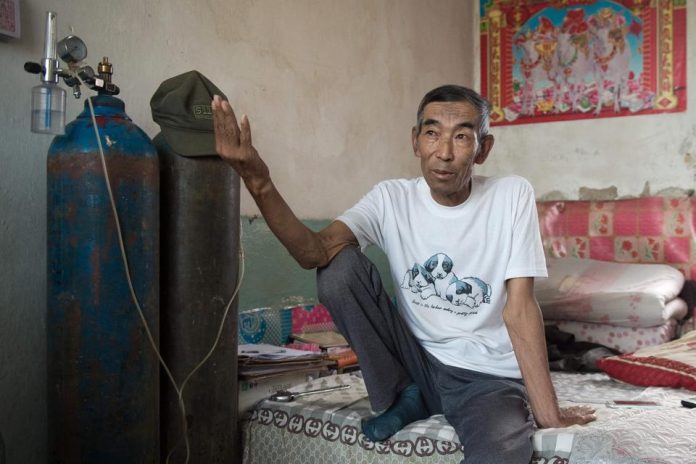An elderly farmer in China who left school when he was just 10 years old is fighting a legal war against a subsidiary of China’s largest chemical firm after teaching himself law from a textbook.
The 64-year-old Wang Enlin, is challenging the chemical giant Qihua Chemical Group (also known as Heilongjiang Haohua Chemical) in court, accusing it of polluting and destroying his farmland.
Wang and other village residents from Heilongjiang, a north-eastern province in China, have sued Qihua for contaminating the soil of their land, making it unsuitable for agriculture.
Ongoing now for over 16 years, the case received a major victory in February this year when a local court directed Qihua to clean up a chemical waste site located near the villagers’ farmland and pay around 820,000 yuan ($120,000) as compensation to the villagers across 55 rural households for lost harvests.
That ruling was however recently overturned in an appeal, but Wang has refused to accept defeat.
Wang and his group of eco-warriers “Senior Citizen Environmental Protection Team” plan to persist in their legal battle. Speaking to press reporters, Wang said that he was convinced that they would win, stating that “law is on our side.”
A Long Battle Against A Industrial Giant
Wang’s case against Qihua is exploring the efficacy of a national environmental protection law that was revised in 2015. The law was touted as an opportunity to file public interest environmental damage lawsuits with courts, but it has been criticised for inadequate implementation.
The battle against Qihua has its origins in 2001 when a village committee leased around 70 acres to the company for use as a dumping ground for chemical waste without consent from the local villagers.
A subsidiary of the government-owned ChemChina, the country’s biggest chemical company, Qihua specialises in crude oil processing as well as production of petroleum products.
According to the villagers the company did not adopt proper pollution control measures, which led to the contamination of nearby land.
Wang decide to learn the law after finding that he did not have the knowledge or resources to challenge the industrial giant. He started teaching himself using a textbook on environmental law he found at a local bookstore. It took him years of effort to understand, often using a dictionary to look up unfamiliar terms.
His petitions to the local authorities received no response, but after gaining financial aid from the Centre for Legal Assistance to Pollution Victims in 2007, he and the villagers filed a lawsuit using the evidence complied by Wang.
Wang’s Efforts Start Yielding Results
- A Beijing-based non-profit Green Beagle Institute carried out mercury-level tests in 2013, and found that the land was “not suitable for agricultural use”.
- Qihua was listed by the Ministry of Environmental Protection in 2014 in a list of “major” environmental cases.
- Wang’s case was finally accepted into China’s justice system in 2015
According to a prominent environmentalist Ma Jun, litigation processes have been streamlined in the past couple of years, but pollution lawsuits still take years in courts, in part due to polluting companies getting “some degree of protection” from local governments.
Qihua’s lawyers declined to comment on the case.
A Continued Focus On Getting Justice
Wang has accused Qihua of “pretending to be deaf and mute” on the issue. Wang claimed that police officers freely visit urging him to drop the case and stop talking to media.
Wang typically prepares his own legal documentation and conducts daily meetings at his home for villagers looking learn more about their rights. He currently suffers from lung problems and depends on medicine to breathe properly.
This September, the Qiqihar Intermediate People’s Court accepted Wang’s lawsuit appealing the February ruling.
Wang Baoqin, part of Wang Enlin’s senior citizens’ environmental group noted that they were just farmers who can’t win against the government or corrupt officials, so had decided to take “the side road and fight the company.”
According to Rachel Stern, who has authored the paper, “Environmental Litigation in China: A Study in Political Ambivalence,” there has been a tenfold increase in legal cases that involve natural resources in the past decade.
Data shows that the Supreme People’s Court heard last year 133,000 such cases.
Some of the cases have been successful. A petrol giant was directed in 2015 to pay compensation of 1.68 million yuan ($265,000) to 21 fishermen whose livelihoods had been affected by oil spills.
Wang Baoqin doesn’t expect to see justice in her current lifetime, pointing out that the villagers were “doing this for the generations to come.”



